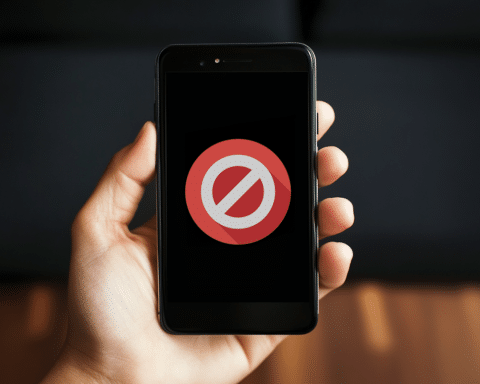Microsoft Bing Aims to Seize a Portion of the Search Market From Google
Search engines serve as portals to the internet, with Alphabet’s (NASDAQ: GOOGL) (NASDAQ: GOOG) Google commanding a 93% global market share. However, its dominant position is challenged by tech rival Microsoft (NASDAQ: MSFT), which has incorporated artificial intelligence (AI) into its Bing search engine.
Over the last decade, how people access the internet has transformed significantly. In 2012, only 10% of website traffic originated from mobile devices; this number has skyrocketed to over 60% today, primarily due to the widespread adoption of smartphones.
Google’s success can be largely attributed to its partnerships with smartphone manufacturers, who designate Google as the default search engine on their devices for a fee. This arrangement channels internet traffic from billions of people worldwide to the industry leader with minimal competition.
However, reports suggest that smartphone giant Samsung Electronics (OTCMKTS: SSNLF) is considering switching to Microsoft Bing; such a change could create a massive fissure in Google’s dominance.
The Bing Revolution in the Search Industry
Earlier this year, private company OpenAI released the latest iteration of its AI-powered chatbot, ChatGPT. It astounded even the most seasoned tech professionals with its ability to answer detailed questions and write computer code quickly.
ChatGPT rapidly attracted 1 million users within five days and 100 million users in two months. Traditional search engines like Google provide a list of web pages for users to sift through to find answers, whereas ChatGPT directly answers questions (within its capabilities), offering a quicker and more convenient information-seeking solution.
Microsoft recognized OpenAI’s potential in 2019 when it invested $1 billion. Following ChatGPT’s success in 2023, Microsoft doubled with an additional investment spread over the next few years, rumoured to be worth up to $10 billion.
ChatGPT has now been integrated into Microsoft’s Bing search engine, delighting users. In the week following this integration, Bing experienced nearly as many downloads as it did in 2022!
Naturally, this development has provoked a fierce reaction from Google, which claims a leading position in the AI space due to years of behind-the-scenes work. Google officially unveiled its Bard chatbot in March, but it is not publicly accessible. According to The Times, Google is constructing an entirely new AI-based search engine while upgrading its existing one with AI tools like Bard.
Losing Smartphone Deals Would Spell Disaster for Alphabet
GlobalStats data from March reveals that Samsung represented 27.1% of global smartphone sales, making it the second-largest player behind Apple, which held a 28.3% market share.
Google pays an estimated $3 billion annually to Samsung to set its search engine as the default on all devices. In return, the search engine generates revenue by selling paid advertising spots in its rankings to businesses, which users see when searching for information.
In the past, Samsung would have preferred to stick with Google even if a competitor offered more money, as it provided a superior product that enhanced user experience. However, if this is no longer the case, a more substantial cash offer from Microsoft might sway the deal in its favour.
Microsoft has everything to gain. The search advertising business is valued at $200 billion annually, meaning every percentage point of market share taken from Google could result in $2 billion in annual revenue. Bing currently holds a 3% market share, so striking a deal with the second-largest smartphone manufacturer could be immensely profitable.
But the Battle Is Just Beginning
The Samsung situation may only be the first skirmish in an ongoing struggle.
Wall Street analyst Bernstein believes the search agreement between Apple and Google is up for renewal this year. While Apple holds only a slight lead in global smartphone market share compared to Samsung, it has a more significant advantage in more lucrative markets like the United States. The most recent data indicates that Apple’s iPhone has 56% of the US market, almost double Samsung’s penetration.
Consequently, the Apple-Google deal is much larger, estimated at $15 billion annually. Apple is less closely linked to Google than Samsung since it doesn’t use Alphabet’s Android operating system on any device. Microsoft might have a better chance of securing Apple’s business than winning over Samsung.
In any case, Microsoft is a genuine threat to Google’s dominance. Microsoft’s investments in AI could propel the company to become the first to reach a $5 trillion market capitalization by 2030. If that occurs, investors could double their money in Microsoft stock based on its current trading value.
On the other hand, Alphabet must demonstrate its ability to withstand this massive competitive challenge in the coming months.
The escalating AI-driven battle between Microsoft Bing and Google has the potential to reshape the search engine landscape, with significant implications for partnerships and market shares. As Microsoft continues investing in AI technology, the company may redefine the industry and challenge Google’s long-held dominance.




